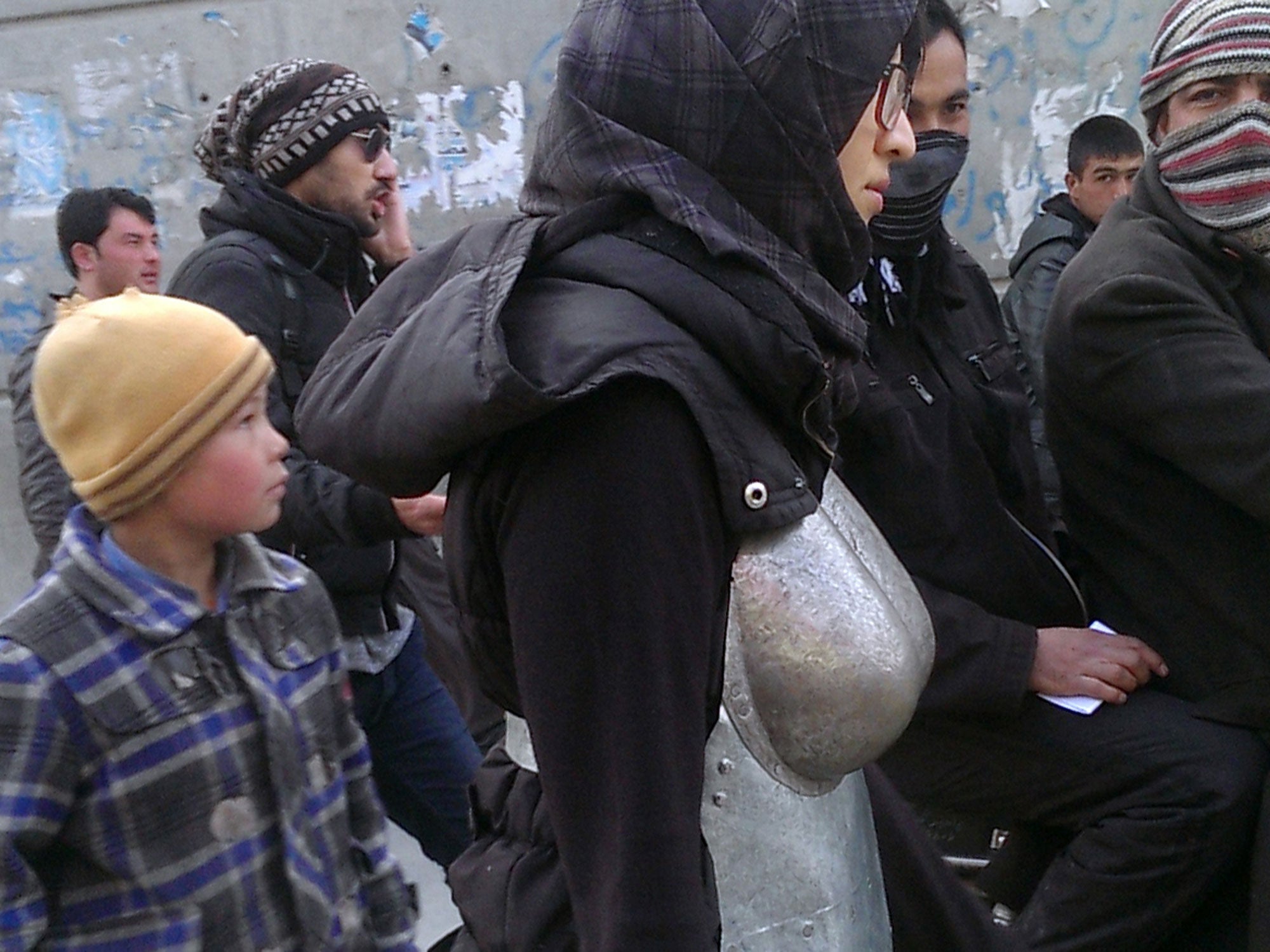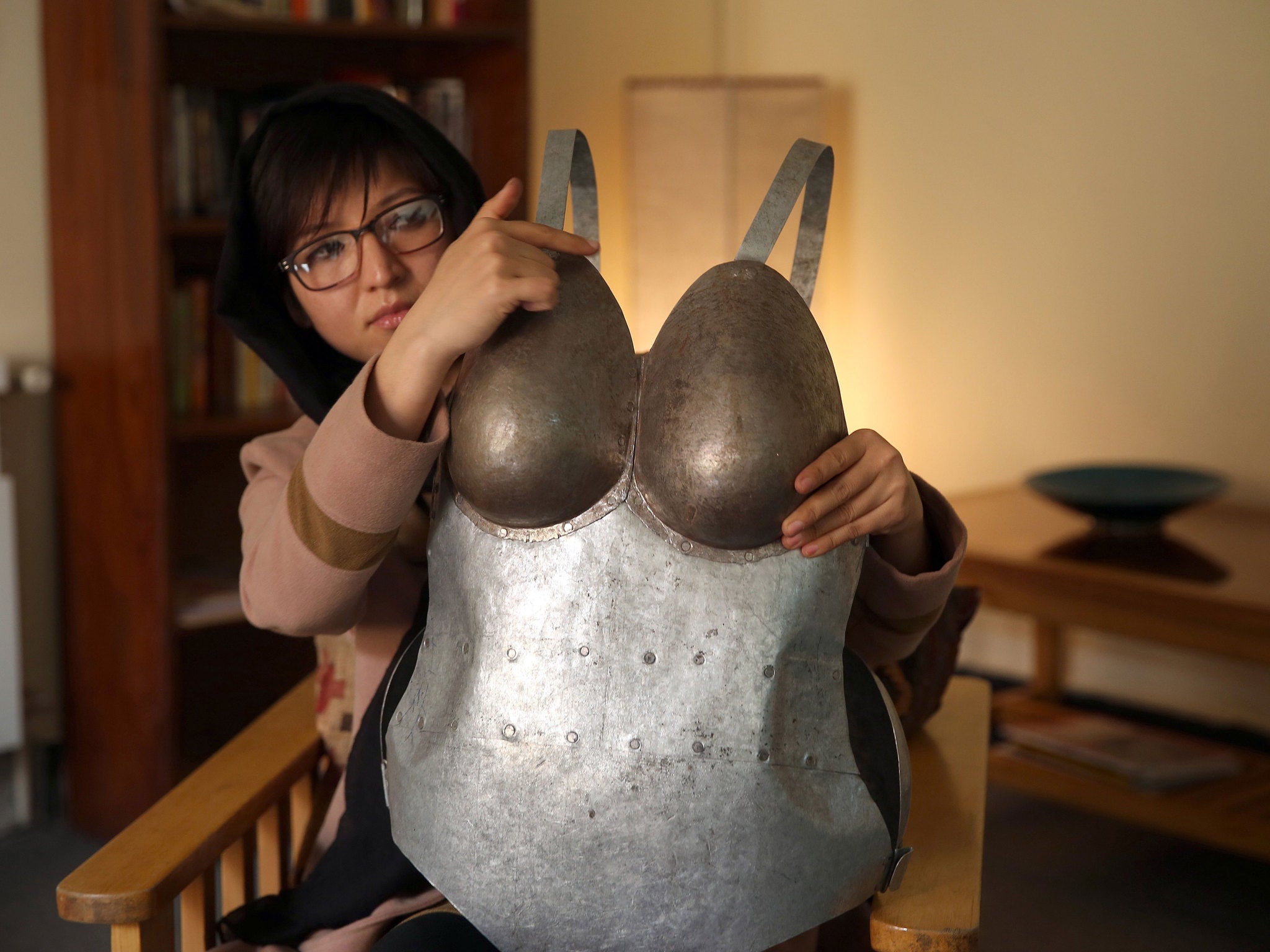Woman in armour protesting against sexual harassment in Kabul pelted with rocks
Kubra Khademi is now in hiding after her demonstration in the Afghan capital

Your support helps us to tell the story
From reproductive rights to climate change to Big Tech, The Independent is on the ground when the story is developing. Whether it's investigating the financials of Elon Musk's pro-Trump PAC or producing our latest documentary, 'The A Word', which shines a light on the American women fighting for reproductive rights, we know how important it is to parse out the facts from the messaging.
At such a critical moment in US history, we need reporters on the ground. Your donation allows us to keep sending journalists to speak to both sides of the story.
The Independent is trusted by Americans across the entire political spectrum. And unlike many other quality news outlets, we choose not to lock Americans out of our reporting and analysis with paywalls. We believe quality journalism should be available to everyone, paid for by those who can afford it.
Your support makes all the difference.An Afghan woman was almost lynched as she took to the streets of Kabul in metal armour to protest against the sexual harassment faced by females.
The solo demonstration by Kubra Khademi, 27, came more than 20 years after she was first molested by a stranger on the street at the age of just four. She recalls thinking at the time: “I wish my underwear was made of iron.”
As the world celebrates International Women’s Day this Sunday, stories such as Ms Khademi’s illustrate the problems still faced by females in countries across the world.
Wearing a suit of armour, which covered her breasts and buttocks, the performance artist walked through the most populous area of the city, Kote Sangi, where she claims women are frequently harassed.
The eight-minute long protest was poorly received by onlookers who threw rocks and jeered and Ms Khademi was forced to cut short her demonstration and flee the scene by taxi. She is now in hiding and fears for her life.
Women in Afghanistan face endemic harassment, including inappropriate touching and prodding. Girls are still sold into marriage and domestic violence goes largely unpunished in the country, where the fight for gender equality is still in its infancy.
At the age of four, a stranger touched Ms Khademi’s bottom while walking to a shop near her family home in Quetta, Pakistan – where she had fled with her family to escape the Taliban.
Expecting someone to come to her aid when she screamed, the reaction was instead hostile.
“All the people stared at me and even started yelling at me: 'You whore! How dare you scream! Did you enjoy it?” Ms Khademi said.

“Nobody saw that man. Maybe he was among the people shouting at me. This stuff happens daily and I see it. But if I am a 'good girl' I shouldn't say it, not to my mother, not to my brother, I shouldn't say it in public. But I will say it.”
Since that time she has been repeatedly molested in the street, once in the streets of Kabul in 2008, when she returned to take the entrance exams at the fine art department of the city’s university.
Before her demonstration last month, Ms Khademi spent four months interviewing women about sex, sexuality and identity. She lamented the fact that so few women owned their experiences.
“What I felt was the same: women do not have the right to enjoy, and should not have the right to enjoy. It's like food — you desire to eat, but good women should not talk about it, good women should not enjoy it, good women should not have the right to think of it as her right,” she added.
Additional reporting by AP
Join our commenting forum
Join thought-provoking conversations, follow other Independent readers and see their replies
Comments